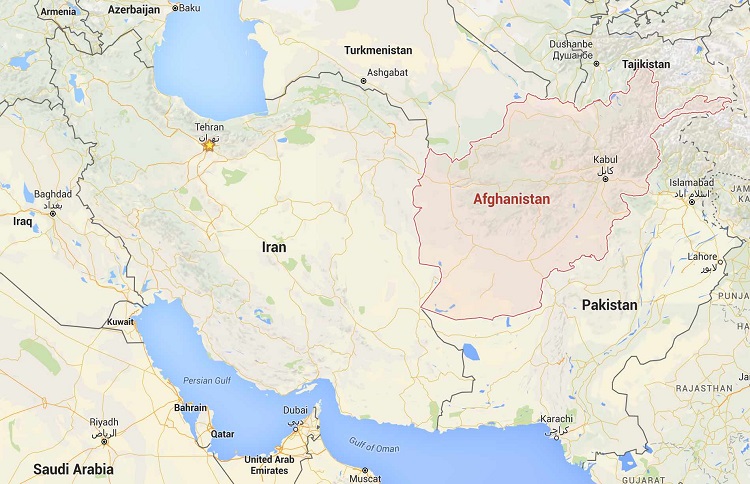
By Jubin Katiraie
It was reported on Wednesday that Iranian Foreign Minister Mohammad Javad Zarif had met with a visiting delegation from the Taliban. This was only the latest in a series of high-profile meetings between representatives of Iran’s Shiite theocracy and the Sunni militant group that ruled Afghanistan prior to the US invasion in 2001.
Although Tehran’s regional strategy generally focuses on patronage of fellow Shiite groups, the regime has a demonstrated history of supporting would-be ideological adversaries on the basis of mutual animosity toward the US and other Western powers or more precisely, to expand terrorism across the region.
Iran’s expanding cooperation with the Taliban is widely recognized as an example of this larger phenomenon. The relevant meetings have taken place against the backdrop of worsening tensions between the US and the Iranian regime, particularly following the American withdrawal from the Iran nuclear deal in May 2018. The tensions have occasionally led close to direct conflict between the two countries, as when the Islamic Revolutionary Guard Corps shot down an American surveillance drone near the Strait of Hormuz. But direct antagonism is arguably secondary to Iran’s efforts at leveraging its regional relationships to challenge American allies and interests.
The Taliban’s potential role in this strategy was underscored by Reuters’ observation on Wednesday that “the Taliban have refused to talk to Afghan President Ashraf Ghani’s government, denouncing it as a U.S. puppet.” Whether or not Tehran shares that view, Zarif and other officials appear to be capitalizing on the perception that expanded Taliban influence in Afghani politics would represent a significant setback for the US. Toward that end, such officials have explicitly argued in recent months that Afghanistan cannot achieve long-term stability without including the Taliban in its governance structures.
However, Zarif’s meeting with the group cannot be said to have yielded noticeable progress toward securing a place for the Taliban in Afghani affairs. Meanwhile, there are growing signs that in the broader region, it is the Iranian regime, rather than the US, which is facing an imminent setback for its interests. This is evident from weeks-long protests that have been taking place in Iraq and Lebanon, with citizens of both countries specifically insisting upon the removal of Iran-backed militias and politicians from their national institutions. And the prospective impact of those protests was enhanced, starting on November 15, by intense anti-government demonstrations in Iran itself.
#Iraqi People’s Campaign to #Boycott #Iranian Goods in Markets https://t.co/PjFEv5pMyx via @iranfocus #Iranfreedom #freeiran #MEK #Iran @USAdarFarsi pic.twitter.com/RUh1nbSysP
— Iran Focus (@Iran_Focus) November 3, 2019
Meanwhile, there are signs that the US is working to exploit the situation in order to strengthen its own position respective to Iran’s. On Tuesday, the chairman of the Joint Chiefs of Staff, US Army General Mark Milley, arrived in Baghdad to strengthen the established relationship between American forces and the Iraqi government. Prime Minister Adel Abdul-Mahdi, who took office last year, was widely recognized as a compromise candidate who reaffirmed the country’s status as the prize in a competition for influence, mainly between Washington and Tehran.
Iranian influence in Iraq has become deeply entrenched in the form of the so-called Popular Mobilization Units, which fought against the Islamic State of Iraq and the Levant, or ISIS, in recent years. The PMUs are mainly Iran-backed Shiite militant groups and have been utilizing tactics as brutal as those of ISIS, in service of contrary ideological objectives. Yet some of the Shiite militants have successfully fielded their own candidates for high office in Iraq, where they may set policy while putting Tehran’s interests ahead of Baghdad’s.
Although this entrenchment certainly presents a challenge to Washington’s efforts to maintain and/or expand its own influence, the same phenomenon has also fueled the popular backlash that has been on display in the form of protests that began in early October and escalated dramatically around the middle of the month. Since then, resistance to Iranian overreach has only been further strengthened by accounts of Iranian forces contributing to the repression of dissent, as by firing on protestors from rooftops.
In his visit to Baghdad, General Milley evidently sought to focus additional attention on these abuses and to help justify local efforts to push Iran’s assets out. “Iran is aggressive in the region against their neighboring states, both overtly and covertly,” he said in comments to reporters before suggesting that circumstances have yet to determine whether this aggression will continue into the future.
Some may see Milley’s efforts as a direct analog to Zarif’s endorsement of a larger role for the Taliban in Afghani affairs. But the US general’s visit to Baghdad was far more subtle in its messaging that the Iranian regime’s hosting of Taliban representatives. And at a time when the White House is moving forces out of combat zones, Milley’s statement about Iranian aggression is also noticeably more credible than the notion that Afghanistan’s current government is a “puppet” of Washington.


